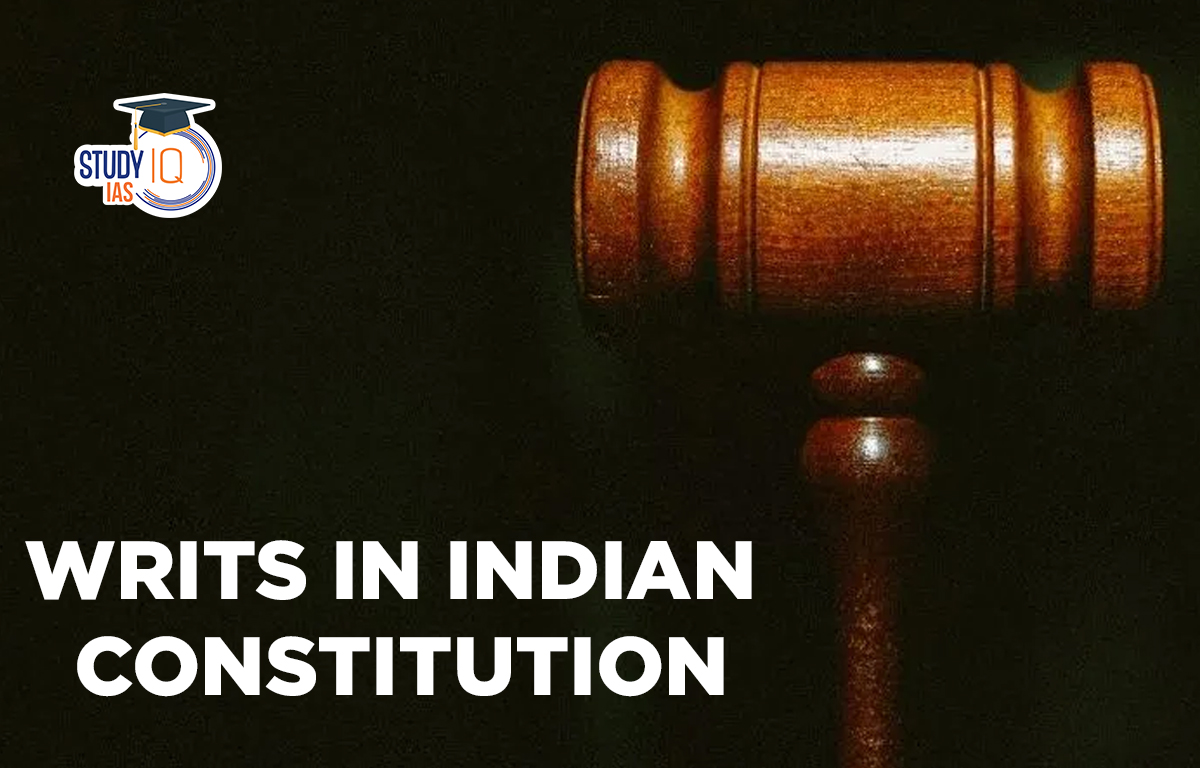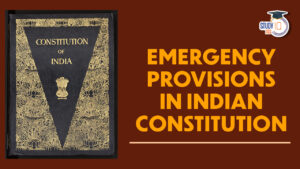Table of Contents
Writs
Writs are special legal tools meant to protect Fundamental Rights mentioned in Part III of the Constitution. They are written orders that tell someone to do something or to stop doing something. The Supreme Court can issue these writs under Article 32, while the High Court can do so under Article 226. Writs serve as remedies to enforce these rights and can take various forms, such as orders, warrants, or summons. A person who feels their rights have been violated can request a writ by submitting a writ petition to the appropriate authority. Dr. B.R. Ambedkar referred to Article 32 as the “heart and soul” of the Constitution because of its importance in safeguarding rights.
Writs in Indian Constitution
In accordance with Article 32 of the Indian Constitution, a citizen of India may petition the Supreme Court of India and the High Court for constitutional remedies if his or her fundamental rights have been violated. The Supreme Court has the authority to issue writs to enforce rights under the same article, whereas the High Court has the same authority under Article 226. Under the Constitution of India, the Supreme Court and the High Courts can issue the following writs in the interest of the protection of the Fundamental Rights of Citizens.
Types of Writs
There are five types of Writs in Indian Constitution. The Indian Supreme Court is the protector of the people’s fundamental rights. It possesses unique and extensive powers for that. It issues five different types of writs to enforce citizens’ fundamental rights. The five types of writs are:
| Five Writs |
|
Habeas Corpus Writs
| Habeas Corpus |
|
Conditions for Issuance:
- The person wasn’t presented before a magistrate within 24 hours of arrest.
- The arrest was made under an unconstitutional law.
- The person was arrested without legal grounds.
Notable Cases:
- Sunil Batra v. Delhi Administration (1980): A letter from a prisoner led to a writ being issued for protection against mistreatment in detention.
- ADM Jabalpur v. Shivkant Shukla (1976): This case controversially held that the state could restrict Article 21 rights, marking a dark chapter in legal history.
Mandamus Writs
| Mandamus |
|
Exceptions:
- Non-statutory functions.
- When the duty is discretionary.
- For private rights.
- If it contradicts the law.
- If there’s an alternative remedy available.
Notable Cases:
- Union of India v. S.B. Vohra (2004): The Supreme Court upheld exceptions for mandamus.
- Suganmal v. State of M.P (1965): Clarified that if an alternative legal remedy exists, mandamus cannot be used.
Prohibition Writs
| Prohibition |
|
Conditions for Issuance:
- Power used beyond jurisdiction.
- Violation of natural justice principles.
- Use of invalid laws.
- Actions against basic legal rights.
- Errors based on records.
Notable Cases:
- Hari Vishnu v. Syed Ahmed Ishaque (1955): Writ can only be issued if no decision has been given by the court.
- Prudential Capital Markets Ltd v. State of A.P. (2000): Writ cannot be issued after an order has been confirmed.
Certiorari Writs
| Certiorari |
|
Grounds for Issuance:
- Inferior court lacked jurisdiction.
- Inferior court acted beyond its authority.
- Violation of procedural law.
- Failure to uphold natural justice.
Procedure:
- Advocate files a petition with necessary details.
- Notice sent to the opposing party.
- Court hears both sides and issues a writ judgment.
Notable Cases:
- Yekoob v. K.S. Radhakrishnan (1965): Writ cannot be used for appeals.
- Radhey Shyam v. Chhabi Nath (2015): Article 227 powers cannot be used for writs under Article 226.
Quo Warranto Writs
| Quo Warranto |
|
Grounds for Issuance:
- Holding a public office without authority.
- Being unqualified under the Constitution.
- The position must be a permanent public office.
Notable Cases:
- Amarendra Chandra v. Narendra Kumar Basu (1951): Quo warranto can be invoked against private office.
- University of Mysore v. CD Govinda Rao (1963): The public office must be statutory for the writ to be issued.
Writs Jurisdiction
Writ Jurisdiction of the Supreme Court or the High Courts upholds their position as protector of the fundamental rights of people. It complements the fundamental right to constitutional remedies under Article 32 of the Indian Constitution. As discussed above, the courts can issue 5 types of writs to bring this into effect.
Prerogative Writs
Historically, writs were called prerogative writs, as they were issued by the crown to remedy under extraordinary situations. Under the modern legal and administrative system, this terminology is not used.
High Court Writs
The following considerations must be made in relation to High Court Writs:
- The High Courts can issue writs not only to enforce fundamental rights but also for other purposes. In this context, they have wider powers compared to the Supreme court.
- Also, the High Court have discretion in issuing writs compared to the Supreme court which must issue writs when fundamental rights are violated.
Who is eligible to file Writs Petition ?
Any India citizen is eligible to file a writ petition if their fundamental rights have been abrogated. It is a legal document issued by a court that directs a person to execute a specified activity or to cease performing a certain act. In order to file a Writ Petition in India, the aggrieved party must go to the courts with writ jurisdiction and state their case. Every citizen has this right. Although there is no time limit in India for filing Writs, there must be a compelling reason for the delay.
Writs UPSC
Writs are orders given by courts to uphold the fundamental rights of people (citizens or aliens). In the Indian Constitution, there are five types of writs which include Habeas Corpus, Mandamus, Prohibition, Certiorari and Quo Warranto. Writs can be issued by the Supreme Court and the High Courts against public executive bodies and individual, quasi-judicial bodies, judicial bodies, and private individuals, depending on the type and nature of the writ.
Other Related Article
| Other Related Article | |
| Supreme Court of India | Right to Freedom |
| Right to Freedom of Religion in India |
Right to Information |
| Anti Defection Law | Uniform Civil Code |


 Indian Secularism: Constitutional Provis...
Indian Secularism: Constitutional Provis...
 India Mediation Campaign, Objectives, Pr...
India Mediation Campaign, Objectives, Pr...
 Emergency Provisions in Indian Constitut...
Emergency Provisions in Indian Constitut...





















